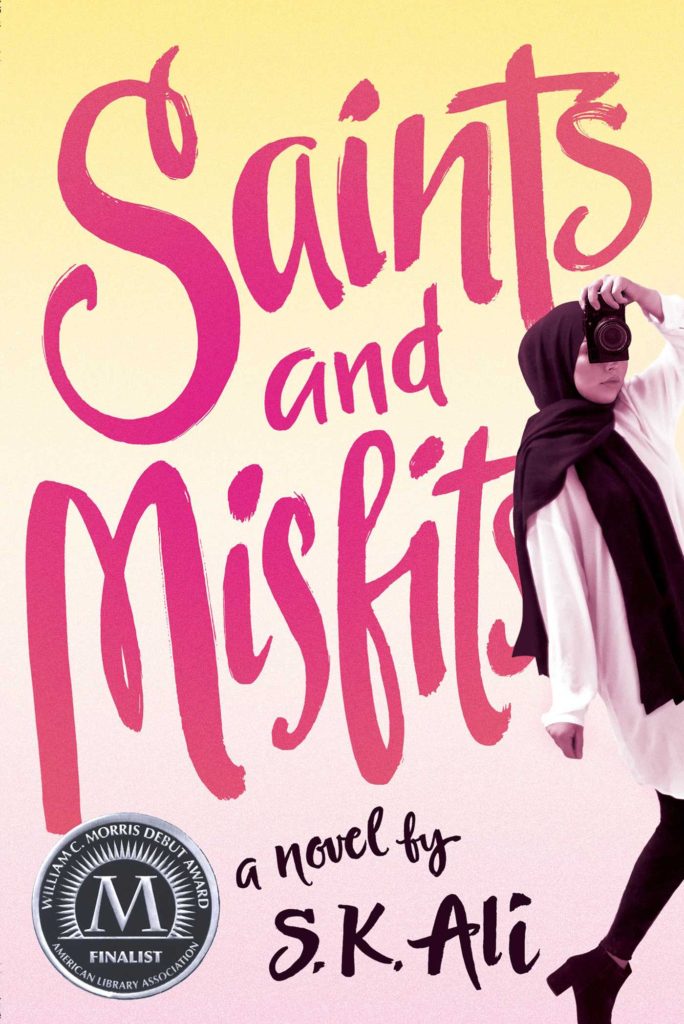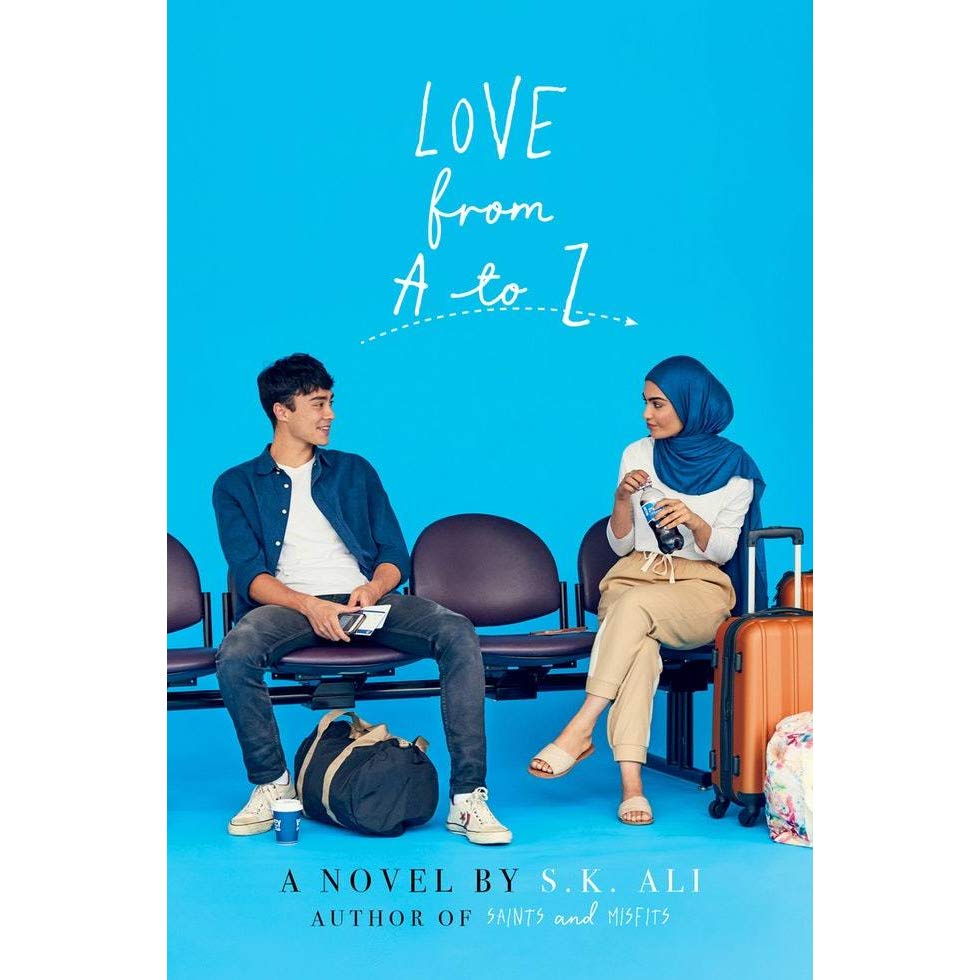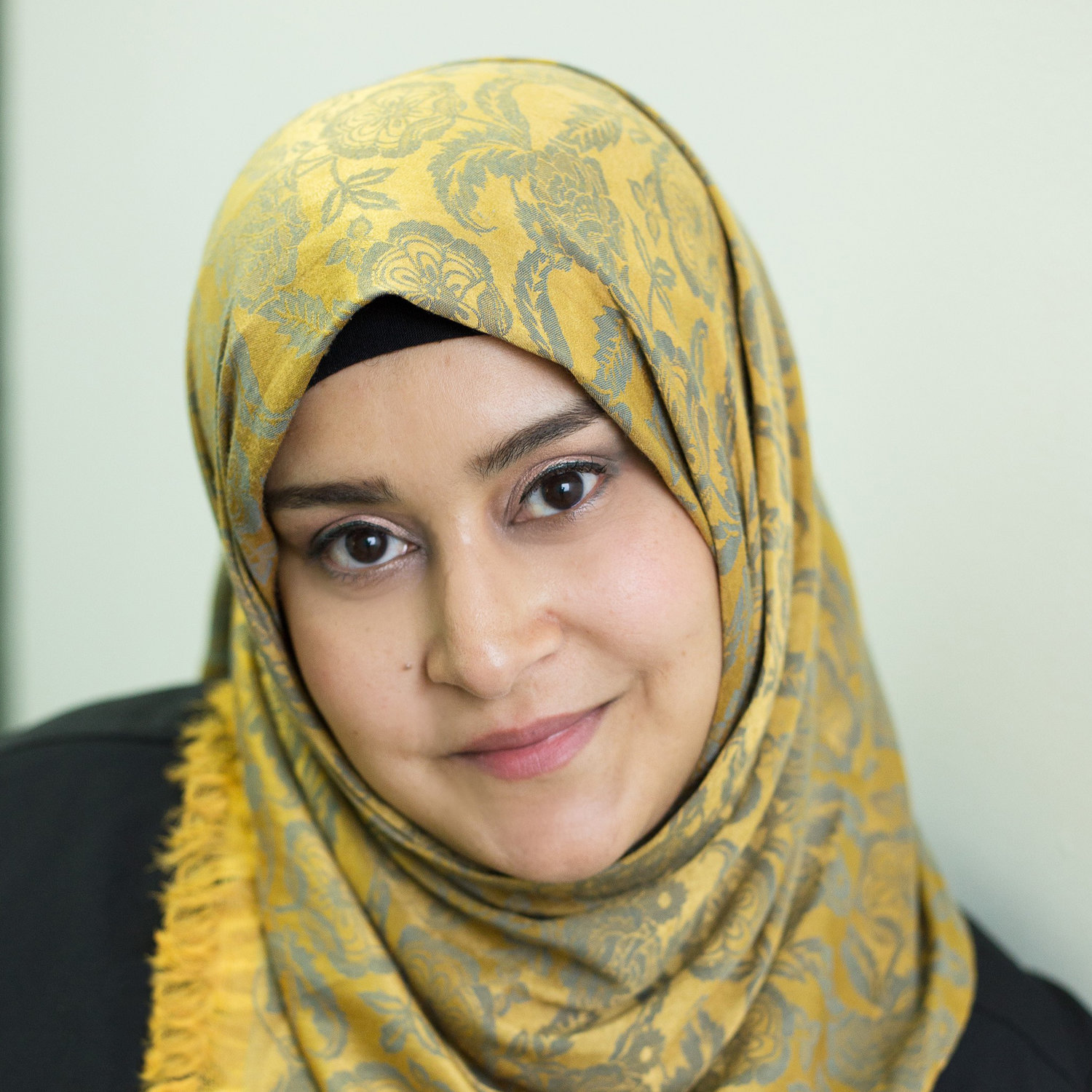Sajidah (S.K.) Ali is the author of two novels for young adults. Her first novel, Saints and Misfits, is the 2017 APALA Young Adult Literature Honor title. Her latest books, Love from A to Z, was released May 1, 2019, and is available through Powell’s Books, local bookstores, or your local library. She is interviewed here by APALA member Molly Higgins.
Molly Higgins (MH): Please introduce yourself and briefly describe your literary work and career path to date.
Sajidah Ali (SA): I’m the author of two young adult (YA) novels and a picture book. I would characterize my YA novels, Saints and Misfits and Love from A to Z, as both being coming-of-age stories in that they explore the process of self-discovery. I’m also an educator of over 20 years, with most of my years spent teaching second and third graders. Oh, I should also mention that I have a degree in Creative Writing, which I got immediately after high school, being so certain that I wanted to write books. However, a long time passed from that degree in the mid 90s to publishing my first book in 2017 because life, lots of it, happened in between.
MH: Your first book, Saints and Misfits, asks its protagonist to make very difficult choices about being true and loyal to herself, her friends and family, and her community at large. What inspired you to write that story?
SA: I wanted to examine the hard decisions that life sometimes requires of us and, as someone who cares about equity, I wanted to do this in the context of a girl waking to the power of her voice and agency. While there is more “girl power” messaging around us in this day and age, there’s still a distinction between what that looks like on a public or performative level and how it translates to a personal, inner level. As a teacher and parent I see this all the time—a girl being fierce in front of others, like putting on a powerful feminist play, or leading a march, but then not being able to transfer that spirit into her own life and stand up for personal things. I wanted to trace the private evolution of girl power.

MH: I empathized strongly with Sausun– she’s very angry, but justifiably so. And she’s so bold and willing to take action. Have you ever imagined what she would be like as she gets older?
SA:I think she’ll grow up to be one of the many women I know in my Muslim community. Due to prevailing media stereotypes, I don’t think the wider world realizes the powerful Muslim women we in the Muslim community are surrounded by. My own feminist awakening and growth happened in mosques, at Islamic conferences, from watching Muslim women who spoke up and from reading early sources from Islamic history and learning how outspoken women of my religious heritage actually were. So Sausun is a reflection of these women. Maybe along the way to growing up, she’ll be the president of the mosque board—if Saint Sarah doesn’t beat her to it, that is!
MH: Your second book, Love from A to Z comes out April 30, 2019. And in it, you continue to examine the question of how young women can deal with and harness their anger. What do you hope readers take away from these characters’ experiences?
SA: I would love if readers take away hope. An understanding that we aren’t mired by our circumstances or the situations that arise in our lives. That yes, difficulties will hit all of us, but we’re not defined by them and we can’t let them take over us and our possibilities. Also, like in my first book, I hope readers learn that we are not alone and that seeking support is a part of being human.
MH: At the end of Love from A to Z, you have an author’s note, in which you speak to the ways that the story is and isn’t representative of various experiences—with illness, with religious conversion, and with Islamophobia. I both appreciate your carefulness and hope for a world where stories from Asian American and Muslim communities are assumed to somehow be representative. This is less of a question, and more of a thank you for being a writer who is part of making that world a reality.
SA: Thank you. There have been reader reviews remarking (in a positive way) on the wide diversity in Love from A to Z and I’m happy to be writing at a time when that’s something to be celebrated (finally!). I like doing ensemble casts—I think that’s my thing!—and when I do, it’s easy for me to reflect the diversity surrounding me, both now and while I was growing up. But still, I acknowledge the vital importance of having a variety of readers give input into the accuracy of experiences other than my own. Like for the multiple sclerosis (MS) depictions, my first draft was very tentative in exploring what was happening and, upon reading it, my family member with MS said I wasn’t getting the trauma and pain enough. I realized then I’d been hesitant so as not to over-dramatize. So I wrote those parts under his (and his wife’s) direct guidance, refining and refining until it passed to their liking.
MH: We’re always looking for more to read. Who are five authors we should we be reading? Why?
SA: Jamilah Thompkins-Bigelow, G. Willow Wilson, Randa Abdel-Fattah, Ausma Zehanat Khan, Uzma Jalaluddin, Hena Khan, and Aisha Saeed. Oops, that was seven! But I’m not going to say “oops” that they’re all Muslim authors. I chose these seven because they’re writing a type of voice that has been historically marginalized in our industry—that of the Muslim protagonist who wears their identity with ease, where the aspect of being Muslim is not an issue that’s creating inner conflict for them. Due to prevalent stereotyping, it’s hard for narratives that go against the grain of Muslim character tropes, those that let characters just be Muslim, to be widely celebrated (though I’m happy to see that that’s slowly changing). Besides writing narratives representing various genres from fantasy to mystery to romance to contemporary, these authors are also representative of some of the diversity in the Muslim community. This last part is so important because Muslims, like other marginalized communities, have suffered from the “single story” yoke for far too long.

MH: You’re being interviewed by a librarian, for an audience of progressive Asian American librarians. What are your thoughts on libraries, and their place in building diverse communities?
SA: I cannot imagine what it would have been like if I’d grown up without libraries. They were such a huge part of my upbringing that I made sure to transfer their importance to my children too. When we returned home after almost a year of living in a country without public libraries, my daughter said she realized she couldn’t ever live anywhere without them again. She asked that our first family trip back home be to visit a library! Libraries are community spaces where people of various backgrounds feel safe, and, from that safe space, feel free and bold enough to discover, renew and transform themselves through books.
MH:What advice would you give young professionals, especially those from diverse backgrounds, who are interested in a career in writing?
SA: Of course, the oft-repeated advice first: read a lot and widely! When you find things you like, read them again with an eye to seeing what makes them work for you. Second, be diligent with learning the craft of writing and what goes wrong and what goes right in manuscripts. Finally, my most important advice is to learn to love writing—love it so much and so absolutely that it becomes something you must do. That last advice is hard when you’re gearing your writing to publication because a single-purposed mantra of I must sell this book often dominates your thoughts. And there’s also the fact that when the business of book-making takes over, it’s a different world, a different hat you’ll be wearing as an author, and sometimes that can make writing seem stressful. But if you find a comfortable, loving home in your words, in creating new stories, you’ll keep coming home. You’ll keep on with a smile and finish another book and then another….and there, that’s how a career is made. So, love the work and the work will (hopefully!) provide for you.
Editing assistance provided by Shanna Kim.

